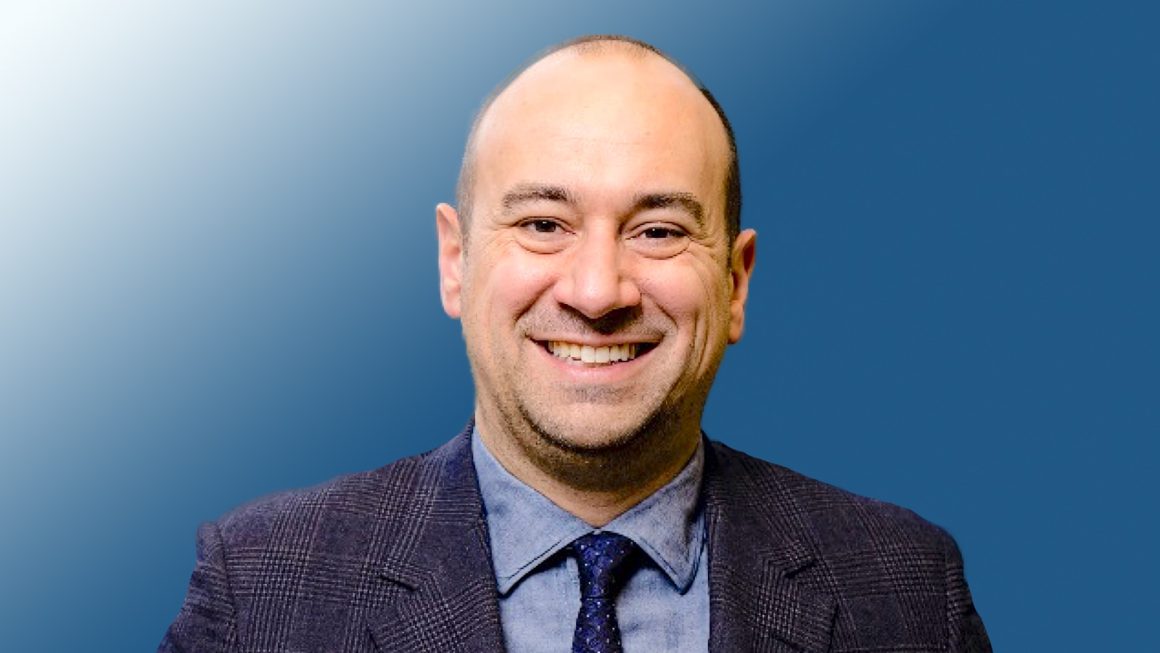In a market where volatility often masquerades as chaos, Hugo Lavallée, Portfolio Manager at Fidelity Investments, sees calibration. Speaking with Glen Davidson on Fidelity Connects,1 Lavallée pulls back the curtain on how he’s navigating the complex landscape facing Canadian and global equity investors. Managing funds such as the Fidelity Canadian Opportunities Fund and the Fidelity Greater Canada Fund, Lavallée emphasizes a bottom-up, company-first strategy that thrives on deep research, balance sheet discipline, and seasoned contrarianism.
“We know what our good businesses are,” Lavallée says, “and there’s an opportunity because they’re down.”
Politics, Portfolios, and Perspective
Despite the recent Canadian election result—another Liberal minority—Lavallée is quick to downplay any tectonic policy shifts. “We looked at the different parties' agendas,” he explains, “and the Liberals kind of pulled a rug away from the Conservative underneath them… both agendas were to stimulate the economy.”
The real focal point, he stresses, lies beyond the 49th parallel. “The most important thing will be to negotiate with President Trump,” Lavallée remarks, indicating that bilateral trade relations and the evolution of tariffs remain top of mind for portfolio construction.
The Case for Canada—and Beyond
Lavallée balances national pride with global pragmatism. “We can truly build some of the best stocks in the world,” he says, citing names like Constellation Software, Couche-Tard, Dollarama, and Shopify. Yet he acknowledges that Canada’s recent outperformance versus the U.S. is largely compositional—“we have more staples, more utilities, more gold”—rather than driven by true cyclical strength.
His strategy? Avoid chasing safety. “I haven't been adding to gold, and I haven't been adding to utilities,” Lavallée asserts. Instead, he’s recycling those positions to buy “some of our best gained ideas that are kind of down and out.”
But he draws the line firmly on balance sheet risk: “The one risk I’m not willing to take is balance sheet risk. I’m all for looking at companies that are under-earning, but you’ve got to watch the balance sheets.”
Going Global with Purpose
Though the Greater Canada Fund is 49.8% invested domestically, as of March 31, 2025, Lavallée has flexibility to invest up to 49% of Fidelity Greater Canada Fund in foreign markets. “I read the global research every day,” he explains. “I have about 5.8% of the fund in Europe, as of March 31, 2025… but I’m looking for exceptional companies.” Interestingly, he resists the prevailing trend among peers to move capital away from U.S. markets toward Asia and Europe.
“The pain was really in the United States,” he argues, referencing recent bear markets in the Russell 2000, Nasdaq, and S&P 500.
Investing When It’s Toughest
Lavallée began at Fidelity in 2002 and has weathered every market storm since—from 9/11 to COVID to today’s tariff tensions. Each time, he leans on experience over emotion.
“When things get unprecedented,” he reflects, “maybe the most important thing is… don’t panic.”
The lesson? Make informed, experience-based judgments. “You’ve got to make those decisions with imperfect information all the time.”
Risk Management: Avoiding the Crowd
Lavallée is clear-eyed on risk management. “The best risk manager is owning a bunch of really quality businesses that don’t have balance sheet risk.” He’s reluctant to follow the herd into gold, staples, or utilities. “They’re tough businesses,” he says bluntly. “And when things get tough, I don’t want to chase the worst businesses.”
He invokes a quote attributed to Napoleon to reinforce his philosophy:
“The one that can do the ordinary in extraordinary times... I really like that quote because I think it illustrates what I’ve tried to do as a portfolio manager.”
Small, Mid, Large—All Welcome
Lavallée’s approach is nothing if not flexible. “Greater Canada is really kind of an omnivore fund. I can kind of do it all,” he says. One of his holdings? Westinghouse Air Brake Technologies—“kind of the only play in town for next generation locomotives.”
The theme remains consistent: “Especially when things get spicy... I think it’s a great time. We know what our good businesses are.”
Valuation at Extremes
On technicals and quant tools, Lavallée is pragmatic. “I've learned the hard way… maybe you want to buy charts that are going up instead of going down.” But for him, valuation matters most—particularly at extremes. “If you look at price-to-book, if you look at EV to sales… I can name you quite a few companies that were at ten-year lows, fifteen-year lows... if you don’t buy them then, when will you buy them?”
Thematic Focus: Where He Sees Value
Lavallée sees opportunity across a few key areas:
- European Stimulus Plays: “Germany is going to stimulate… can we buy some good, unique European businesses?”
- Tech Recovery (Non-AI): “I’ve bought some tech stocks over the last month… maybe that’s an opportunity.”
- Consumer and Travel: “There’s really good quality businesses in travel… some have been crushed… is that an opportunity?”
- Hard Cyclicals: “Some of the names are 10x recovery earnings, so that’s interesting.”
What’s he avoiding? “Safety.”
Gold, utilities, and staples don’t pique his interest now.
Staying in the Game with Fidelity Global Equity+ Fund
Lavallée also co-manages Fidelity Global Equity+ Fund alongside Dan Dupont and Mark Schmehl. “Global Equity+ is doing what it’s supposed to do,” he says. “Mark had a career year... now it’s more Dan’s market… hopefully it’s going to be my cycle at some point too.”
That team-based diversification is critical, Lavallée believes, especially for clients prone to emotion-driven decisions.
“You’ve got to stay in the game,” he emphasizes. “There’s a tendency to go out at the wrong time and into the other thing... just stay into a product that may compound capital over time.”
For Hugo Lavallée, the market’s recent turbulence is not a reason to retreat but a reason to refocus. He’s not looking for perfection—he’s looking for conviction, resilience, and undervalued opportunity.
“I don’t think I do anything extraordinary,” Lavallée says. “It’s just: what are our favorite names? What are the stocks that we always wanted to buy? And that’s what I try to do in those moments.”
Footnote:
1 Fidelity Investments. "Finding contrarian value with Hugo Lavallée | FidelityConnects." 6 May. 2025, fidelitycanada.podbean.com/e/finding-contrarian-value-with-hugo-lavallee.














